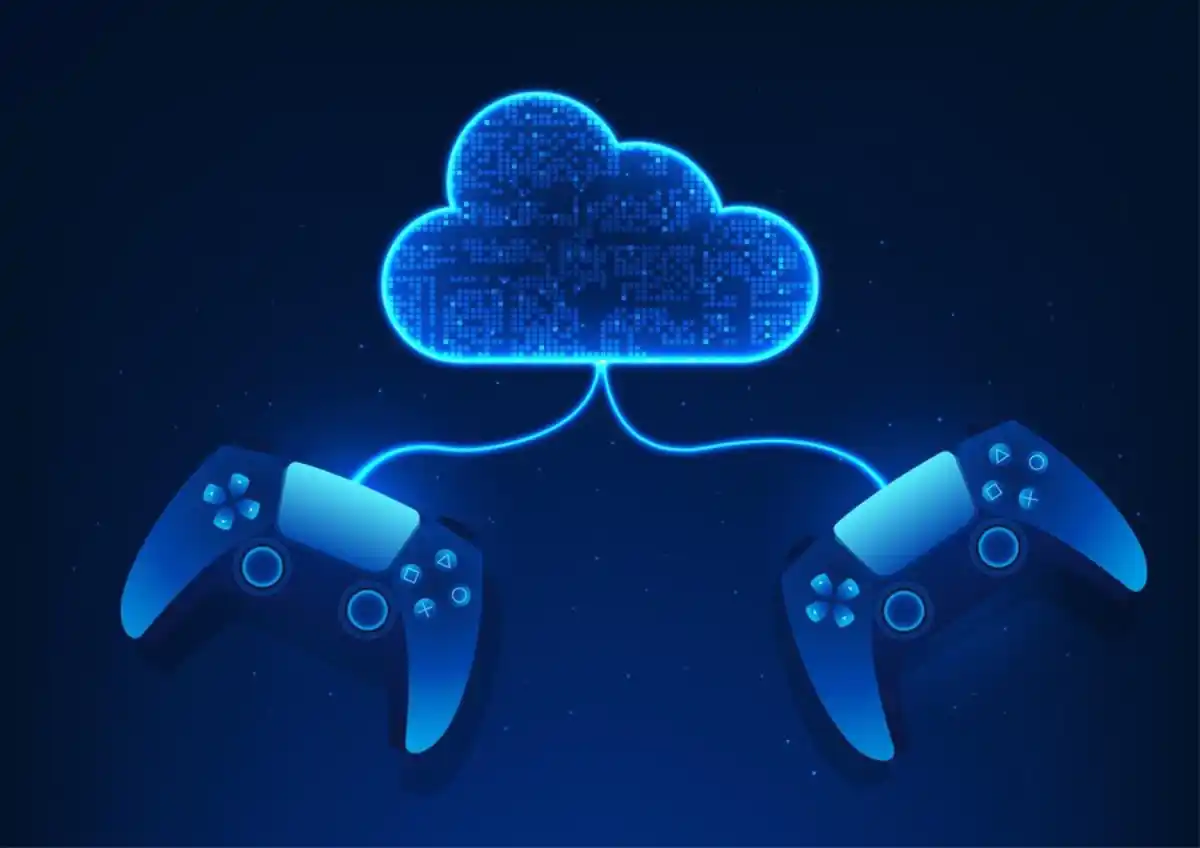
The Future of Cloud Gaming: Will Consoles Become Obsolete?
The gaming industry is changing fast with the rise of cloud gaming. In the past, gaming needed costly hardware like consoles or powerful PCs. Now, advancements in game streaming technology are shifting this trend. As big tech companies invest in cloud platforms, many gamers wonder: will traditional consoles become outdated soon?
This article looks at the growth of cloud gaming, its effects on the industry, and whether the future of gaming will be fully digital.

Understanding Cloud Gaming
What is Cloud Gaming?
Cloud gaming lets players stream games directly to their devices without needing high-end hardware. Instead of running games on local machines, powerful cloud servers do the processing. The gameplay streams in real-time over the internet.
This means gamers can enjoy high-quality graphics and smooth gameplay on devices like smartphones, tablets, or smart TVs without the need for expensive consoles or PCs.

How Game Streaming Works
Game streaming works through:
- Remote Servers: Powerful cloud servers host and process games.
- Data Transmission: The server streams audio and video to the player’s device.
- User Input: Players send commands back, which the server processes instantly.
Companies like Google (Stadia), Microsoft (Xbox Cloud Gaming), NVIDIA (GeForce Now), and Sony (PlayStation Now) have created cloud gaming platforms, making game streaming available to many.
The Benefits of Cloud Gaming
Accessibility and Convenience
One major benefit of cloud gaming is accessibility. Gamers no longer need to buy expensive consoles or upgrade their PCs to play the latest games. They can access a library of games on any compatible device with a stable internet connection.
Cost Savings for Gamers
Cloud gaming cuts the costs of buying consoles, lowering the barrier to entry. Instead of spending hundreds of pounds on a new PlayStation or Xbox, gamers can subscribe to a game streaming service for a monthly fee, similar to Netflix or Spotify.
Cross-Platform Play
With cloud gaming, players can switch between devices effortlessly. For example, a gamer can start on a PC and continue on a mobile phone without losing progress. This flexibility makes the future of gaming more adaptable to modern lifestyles.
No More Hardware Limitations
Because cloud gaming uses powerful remote servers, gamers don’t need the latest hardware for high-quality graphics. Even budget devices can run demanding games without problems.
The Challenges of Cloud Gaming
Internet Dependency and Latency Issues
Despite its perks, game streaming faces challenges, especially with internet speed and latency. Unlike traditional console gaming, which runs locally, cloud gaming needs a stable, high-speed internet connection.
Potential issues include:
- Lag and Input Delay: A slow connection can delay player inputs and on-screen actions, hurting gameplay.
- Bandwidth Consumption: Streaming in high resolution (1080p or 4K) uses a lot of data, which can be a problem for users with limited broadband plans.
- Regional Availability: Not all regions have the infrastructure for smooth cloud gaming.
Ownership Concerns
Many traditional gamers value owning physical or digital copies of games. With cloud gaming, games are stored on remote servers, meaning players don’t truly “own” what they play. If a service shuts down, access to purchased games might vanish, raising long-term availability concerns.
Game Library Limitations
While major platforms are expanding their game selections, not every title is available for cloud gaming. Licensing agreements, exclusivity deals, and publisher restrictions can limit access, making game streaming less appealing to hardcore gamers who want extensive libraries.
Will Consoles Become Obsolete?
The Role of Consoles in the Future of Gaming
Even as cloud gaming grows, traditional consoles still play a key role in the future of gaming. Here’s why:
- Performance Stability: Consoles offer consistent performance, unaffected by internet quality issues.
- Offline Play: Consoles let gamers play without internet access, crucial for those in areas with unreliable broadband.
- Exclusive Titles: Many AAA games remain exclusive to consoles, ensuring continued demand for hardware.
A Hybrid Future: Cloud and Consoles Coexisting
Instead of completely replacing consoles, cloud gaming is likely to complement traditional hardware. Future consoles may blend game streaming features with local play options. For instance, Microsoft’s Xbox Game Pass already mixes console and cloud gaming, giving players multiple ways to enjoy their games.
Gaming giants like Sony and Microsoft are also exploring cloud enhancements for their consoles, suggesting that hybrid models will shape the gaming landscape.

The Future of Gaming: A Cloud-First Approach?
The Growing Investment in Cloud Gaming
Major companies are heavily investing in cloud gaming infrastructure, hinting at a gradual shift to cloud-first gaming experiences. Advances in 5G, edge computing, and AI-driven streaming will improve game streaming quality.
Subscription-Based Gaming Services
The rise of subscription gaming services like Xbox Game Pass and PlayStation Plus fits the future of gaming. Gamers may prefer accessing large libraries on demand instead of buying individual titles, similar to the shift from DVDs to streaming.
The Role of AI in Cloud Gaming
Artificial intelligence is becoming important in cloud gaming by:
- Enhancing real-time game rendering to cut latency.
- Optimising server load balancing for better streaming performance.
- Improving AI-driven matchmaking for multiplayer games.
With AI innovations, the future of gaming could lean more toward the cloud, reducing reliance on physical hardware while enhancing player experiences.
Cloud Gaming: The Future or a Console Companion?
The rise of cloud gaming has sparked debates about traditional gaming consoles. While game streaming offers accessibility, cost savings, and flexibility, issues like internet dependency, game ownership concerns, and performance problems suggest that consoles won’t disappear soon.
Instead, the future of gaming will likely involve a hybrid model, where cloud gaming and traditional consoles coexist. As technology evolves, we can expect better integration between hardware and game streaming, giving players more choices in how they enjoy their favourite games.
For now, while cloud gaming is shaping the industry, consoles remain vital to gaming culture. The next decade will reveal how much cloud technology will reshape the gaming landscape, but one thing is clear—gaming is becoming more accessible and immersive than ever.


